In the reeds that line the banks of the celestial river Eridanus, you’ll find Hebe on the prowl this month. Discovered in 1847 by German amateur astronomer Karl Ludwig Hencke , the asteroid may hold the key to the origin of the H-chondrites, a large class of metal-rich stony meteorites found in numerous amateur and professional collections around the world. You can now see this interesting minor planet with nothing more than a pair of binoculars or small telescope.
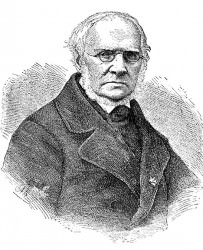
The first four asteroids – Ceres, Pallas, Juno and Vesta – were discovered in quick succession from 1801 to 1807. Then nothing turned up for years. Most astronomers wrongly assumed all the asteroids had been found and moved on to other projects like measuring the orbits of double stars and determining stellar parallaxes. Nothing could have been further from the truth. Hencke, who worked as a postmaster during the day, doggedly persisted in sieving the stars for new asteroids in his free time at night. His systematic search began in 1830. Fifteen years and hundreds of cold nights at the eyepiece later he turned up 5 Astrae (asteroid no. 5) on Dec. 8, 1845, and 6 Hebe on July 1, 1847.

Energized by the finds, astronomers returned to their telescopes with renewed gusto to join in the hunt once again. The rest is history. As of November 2014 there are 415,688 numbered asteroids and a nearly equal number of unnumbered discoveries. Fittingly, asteroid 2005 Hencke honors the man who kept the fire burning.
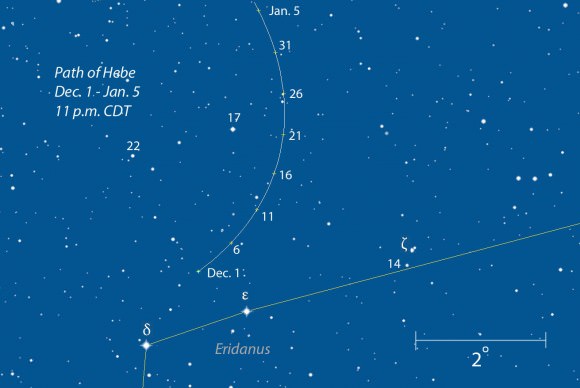
At 120 miles (190 km) across, Hebe is one of the bigger asteroids (officially 33rd in size in the main belt) and orbits the Sun once every 3.8 years. It will be our guest this final month of the year shining at magnitude +8.2 in early December, +8.5 by mid-month and +8.9 when you don your party hat on New Year’s Eve. All the while, Hebe will loop across the barrens of Eridanus west of Orion. Use the maps here to help track it down. I’ve included a detailed color map above, but also created a “black stars on white” version for those that find reverse charts easier to use.
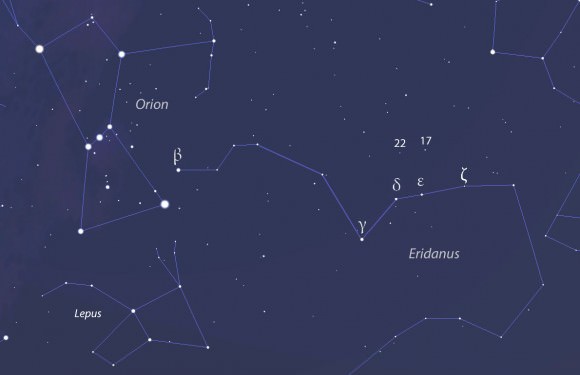
In more recent times, Hebe’s story takes an interesting turn. Through a study of its gravitational nudges on other asteroids, astronomers discovered that Hebe is a very compact, rocky object, not a loosey-goosey pile of rubble like some asteroids. Its high density provides strong evidence for a composition of both rock and iron. Scientists can determine the approximate composition of an asteroid’s surface by studying its reflectance spectrum, or what colors or wavelengths are reflected back from the object after a portion is absorbed by its surface. They use infrared light because different minerals absorb different wavelengths of infrared light. That data is compared to infrared absorptions from rocks and meteorites found on Earth. Turns out, our friend Hebe’s spectrum is a good match to two classes of meteorites – the H-chondrites, which comprise 40% of known meteorites – and the rarer IIE silicated iron meteorites.
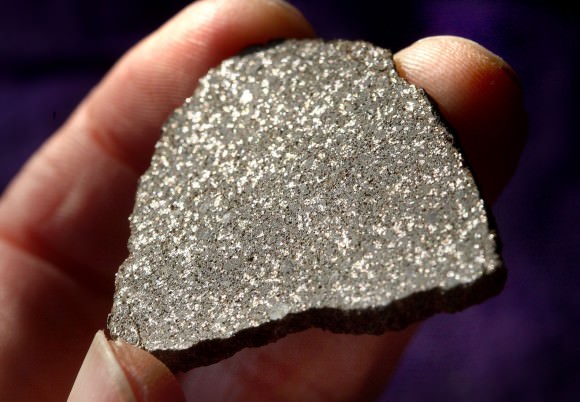
Because Hebe orbits close to an unstable zone in the asteroid belt, any impacts it suffers are soon perturbed by Jupiter’s gravity and launched into trajectories than can include the Earth. When you spot Hebe in your binoculars the next clear night, you might just be seeing where many of the more common space rocks in our collections originated.

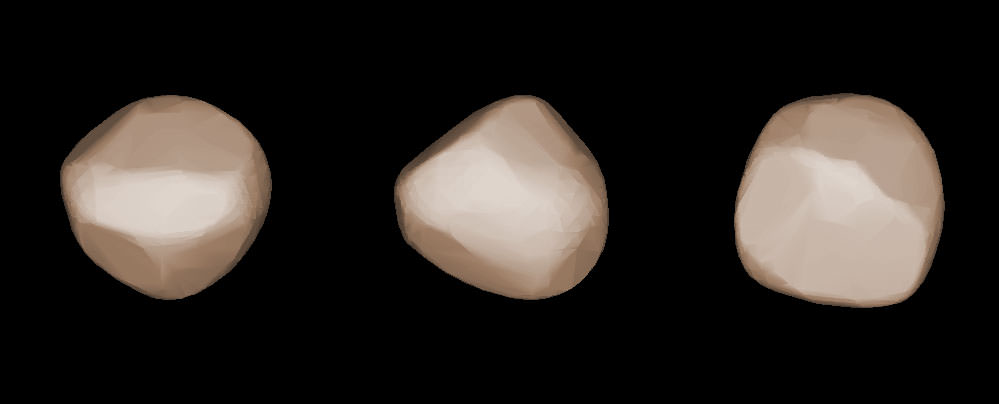
So Bob… are you nominating this asteroid for a mission? Or at least an intense observation campaign using large aperture telescopes with adaptive optics and sensitive spectrometer? Put this on the ‘A’ list for the JWST?
Dreams of humanity building a spaceport/way station in the asteroid belt with metals mined from this object…
Aqua4U,
All fine ideas. I’m just pleased we’re starting to identify particular kinds of meteorites with parent asteroids / asteroid families. Just like Vesta and the Howardite-eucrite-diogenite achondrites. I love knowing the ancestral homes of these rocks that fall from space.
“Mother of Mucho Meteorites” Ummm … with respect to our Latino friends, when we borrow from Spanish, we really ought to correctly use the plural form of the adjective required for plural nouns, i.e. “muchos” . Sound a bit awkward? Imagine how they all cringe when they read this corruption. Since there are MANY bilingual Latinos who read this site, I’m sure they would appreciate this accommodation for their beautiful language.